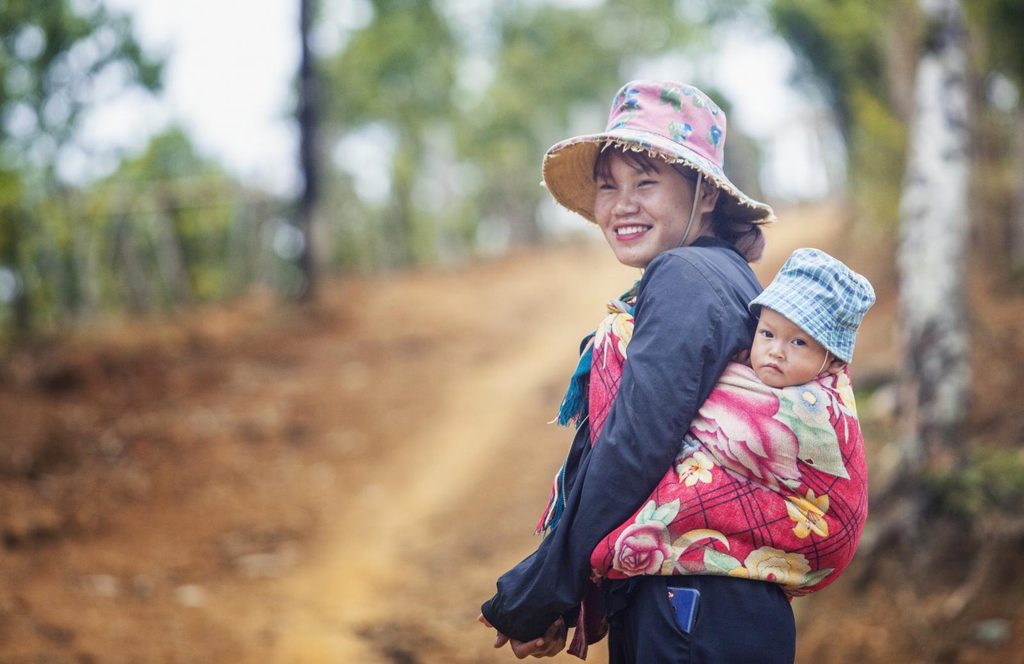The lack of knowledge about contraception and sexual reproductive health and rights among adolescents is common in Y Na’s village in Kon Tum province.

Y Na, 20, and her husband A Don met and fell in love when she was 15. He was two years older so the couple waited until Y Na turned 18 to get married. Not long after their marriage, Y Na fell pregnant and now has a daughter Gia Han who is now almost two years old. In her village, Y Na’s story is unusual as most girls she knows to fall pregnant first and then have to wait until they are 18 to get married.
The lack of knowledge about contraception and sexual reproductive health and rights among adolescents is common in Y Na’s village in Kon Tum province. With limited access to contraception in Vietnam, the teenage pregnancy rate remains high, particularly in rural parts of the country.
Y Na dropped out of school early and says she doesn’t place much importance on education as it has made little difference to her life. For generations, people in her village have grown rice and raised water buffalo to earn a living, and Y Na did not imagine her life would be any different. “I left school in 9th grade because my family was poor and it’s better for me to work for extra money to help feed my family, or at least to feed myself.”
When asked why she got married early and if she thinks there is any difference between now and the past, she thinks for a while before answering: “You mention early marriage but I don’t know what that is. Before, women in my village often brought newborn babies with them to work in the field the day after they were born. For me, it was one month. I don’t know whether things could have been different if I had got married later or if I had gone to high school or even university.”
“You mention early marriage but I don’t know what that is.”
Y Na
Y Na knows just one man from her village who went to university. After graduating the man returned home, got married, and now grows rice for a living, the same as all the other villagers. When asked if she will send her children to school, Y Na responds: “I don’t know, I don’t even think about it as my daughter is still small. I think it depends if we have money.”
Like many other young mothers in her community, Y Na relies on her own mother to help her raise her daughter so when Plan International started a parenting club in her village, she was eager to join to learn new skills.
The club helps young women learn how to prepare and cook nutritious meals using locally available ingredients and encourages parents to take an interest in their children’s education by setting up study corners in their homes where their children can do their homework. We are also providing families with ducks to raise for their eggs which are rich in nutrients.
We hope that over time our interventions in Y Na’s community will start to make a difference and girls will stay in school for longer and finish their studies rather than dropping out, getting pregnant, and marrying early. This is the reason why Plan International is committed to working tirelessly for girls’ right to education and equality.
Categories: Campaigns, Early childhood development


